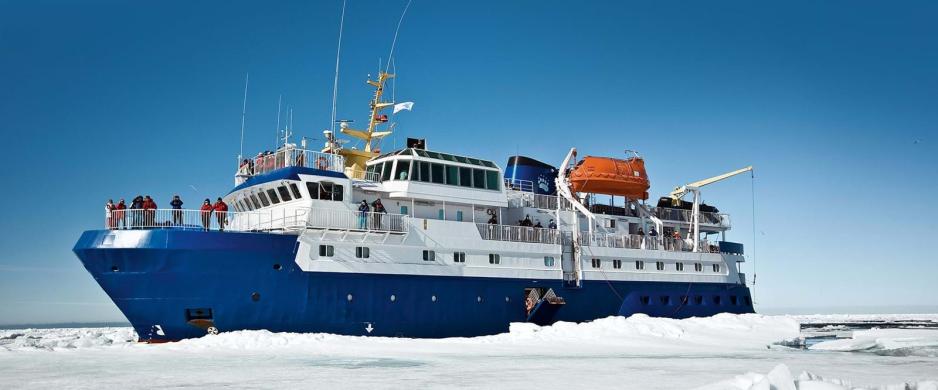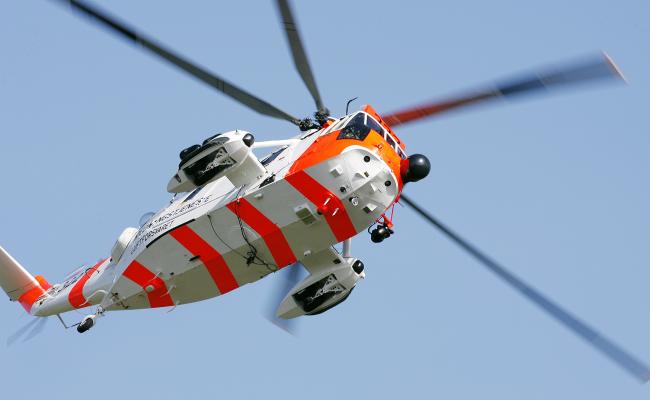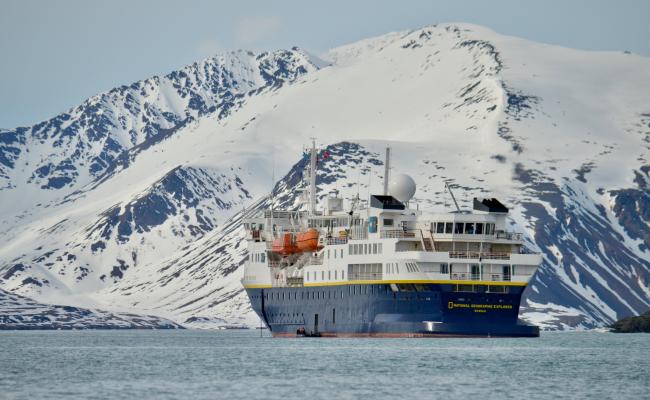Innovative Catastrophe Exercise to Be Held on Svalbard

The expedition ship M/S Quest of the company PolarQuest are to serve as a vessel in distress during the exercise LIVEX on Svalbard. (Photo: PolarQuest)
An expedition ship is on fire outside of Svalbard and tens of people need to be evacuated. This is the scenario for a catastrophe live exercise led by the innovation network ARCSAR, which starts at the end of August. New technology for search and rescue will also be tested.
The catastrophe exercise LIVEX will take place from the 28th of August to the 1st of September outside of Svalbard. The expedition ship M/S Quest will embark on a cruise along the west side of Spitsbergen with 50 passengers and a crew of 25 people. The exercise will also take place in the waters outside of Longyearbyen.
"The exercise will start on a beach where limited emergency situations will be practiced, like providing first aid to an injured person. The exercise will then transition into a simulation of a large fire and complete blackout on the ship, with subsequent mass evacuations," says Kevin Fitzgibbon, leader of Halpin research Center at Munster Technological University in Cork, Ireland.
The exercise is being carried out as part of ARCSAR, an EU-funded project to establish the first formal security and preparedness network for the Arctic and the North-Atlantic.
The project is led by the Joint Rescue Coordination Centre in Northern Norway and the project consortium is comprised of 20 partners from 12 countries. They have contributed in various ways in the years long planning of the exercise and will participate with their representatives. Fitzgibbon at the partner university in Ireland is among these.
The exercise activity on Svalbard is organized by the Icelandic Coast Guard, while the Norwegian Coast Guard and the Norwegian Air Force will be responsible for the evacuation with a ship and a SAR Queen-helicopter.
Other participants are the Governor of Svalbard, The Norwegian Coastal Administration, and the Association of Arctic Expedition Cruise Operators (AECO).
Innovative cooperation
The ARCSAR project is about connecting security and preparedness practitioners, academia, industry and authorities to promote interaction and innovation within search and rescue, as well as oil spill response.
“This is an ambitious research and innovation project which now culminates with the LIVEX exercise. The idea behind the project is that cooperation is even more important in the face of security threats resulting from increased commercial activity in the region including ship traffic and offshore oil and gas activity. We share best practices and develop new practices within preparedness and safety at sea," says Fitzgibbon and continues:
"During the exercise, we will also be testing out new technology in demanding Arctic environments. For example, we will be searching for missing persons with the help of mobile signals, which is challenging in the High North with regard to satellite coverage."
Over the five year project period, somewhat extended due to the Covid-19 pandemic, the ARCSAR network has grown to now include around 100 members. These are various public and private actors in mainly Arctic and European countries.
"The large number of members is very encouraging for us and we believe that the network will remain after the project has been completed," says Fitzgibbon.
The ARCSAR network
- ARCSAR stands for Arctic and North Atlantic Security and Emergency Preparedness Network.
- The project is establishing the first formal security and preparedness network for the Arctic and the North Atlantic, and is partly funded through the EU's research and innovation funding programme Horizon 2020.
- The project consortium is comprised of 20 partners from 12 different countries: Norway, Iceland, Faeroes, United Kingdom, United States, New Zealand, Canada, Germany, Finland, Sweden, Ireland, Italy and New Zealand. The participation of a Russian partner was recently terminated by the European Commission due to the war in Ukraine.
- The Norwegian partners are the Joint Rescue Coordination Centre in Northern Norway, the Norwegian Coastal Administration, Maritime Forum North, the Norwegian Coast Guard, the Norwegian Meteorological Institute, and Nord University.
- The Network also has 100 members from both public and private sector, mainly in the Arctic and Europe.
The article has been updated.
Also read
This article was originally published in Norwegian and has been translated by Birgitte Annie Molid Martinussen.




